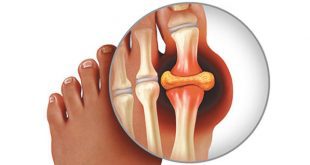By James W. Mallonee


I often get asked from individuals who move from the North to Florida what will be the tax implications when Florida becomes their permanent domicile. Under ordinary circumstances the impact is none, but there are always surprises which can be avoided provided you know how a change in domicile is viewed by your old State.
As it is well known, Florida has no income or estate tax making it a virtual haven for retirement. In some circles the loss of paying state income taxes is like getting a pay raise. The locale where an individual moves from was their domicile with the new Florida residence as the new domicile. It is the idea of domicile that the State losing its tax paying citizen is interested in continuing and not losing.
Domicile is generally defined as one’s permanent living locality with intent to make it a fixed and permanent home. This requires an individual to have the intent to return to the same locality whenever such individual is absent. The difficulty with this definition is how subjective it can be interpreted. The key word is intent and proving intent is almost always determined by a person’s conduct. As a result, any determination of one’s intent will be very fact intensive. It is possible that the facts may show (by means of conduct) that a person’s domicile is in two States. Thus giving the State you are leaving the ability to establish that you continue to make it your domicile for purposes of collecting taxes.
For example, case law in New York established the motives of the individual when changing one’s domicile are immaterial except as they may indicate intentions provided they are genuine. In addition, the New York courts have consistently held that a change in domicile may be made through caprice, whim, fancy, business, health, pleasure, securing a change of climate, change of laws, or for any reason whatever, provided there is an absolute and fixed intention to abandon one and acquire another where the acts of the person confirm such intention to change their domicile.
Based on New York’s view, two elements must be established to prove a change of domicile: 1) abandonment of the old domicile and acquisition of a new domicile; and, 2) actual change or residence. This means you must actually reside in the new location, not intend to reside there while continuing to live in the old residence. New York also uses a set of statutory resident factors to determine if a person remains obligated to pay income taxes even though they reside elsewhere.
New York’s Statutory Resident law requires individuals to report income from all sources and pay the State of New York taxes thereon regardless of where the income is generated or the nature of such income. New York looks to two factors to assess if a person falls under its Statutory Residency law by measuring the amount of time such person is in New York. The measure is based on the number of days spent in New York which is established as more than 183 days a year. What is interesting is being in New York for 1 minute constitutes a day under the law. However, if traveling through New York (e.g. changing planes) does not count toward the 183-day threshold. The second factor is whether a person maintains a permanent place of abode (e.g. summer home or apartment) in New York. Just paying the rent or mortgage (even if you are not there) is considered a form of maintenance. Unfortunately, only one of the two referenced factors need be met to have the threshold for the Statutory Resident law triggered.
To prove a change of domicile you must prove by clear and convincing evidence your establishment of a permanent residence elsewhere. The difficulty in proving a change in domicile by clear and convincing evidence is not relied upon by any one single factor, but a set of facts and circumstances that must be reviewed in each case. Some of those factors are:
The recording of a “Declaration of Domicile” in the county recorders office where you permanently reside; 2) The recording of a “Declaration of Non-Domicile” with recorder of the out of State county you left; 3) Sign a new Will and other estate planning documents within the State where you are permanently residing; 4) Register to vote in your new locality; 5) if you purchase property in Florida, apply for your homestead exemption (be sure to terminate your homestead exemption in the State you left by contacting both the Property Appraiser AND the Tax Collector); 6) Open bank accounts in the locality where you will be permanently residing; 7) Register all of your vehicles, airplanes and boats in the locality where you will be permanently residing; 8) change billing addresses for insurance or credit cards including social, religious or other affiliations to name a few; and, 9) spend as much time as possible in Florida (at least 6 months) and if necessary keep a log of the days spent in and out of Florida.
As you can see, undesired results can occur if affirmative steps are not taken to clearly make it known that your affiliation with the old State is no longer viable. So do yourself a favor and review the factors needed to assure you do not fall into the trap of the unwary who move into Florida and think you no longer have to worry about those pesky out of State income taxes.
James W. Mallonee (Jim Mallonee) is a graduate with a B.A. degree from the University of South Florida and a Master of Science degree from Rollins College in Winter Park, Florida. He obtained his Juris Doctorate from the University of the Pacific, McGeorge School of Law in Sacramento, California. Prior to returning to Florida to practice law, Mr. Mallonee was employed by Intel Corporation for 22 years in such locations as New Jersey, Florida and California.
In addition to being a member of the Florida Bar since 2003, Mr. Mallonee serves on the Charlotte Community Foundation Committee for asset allocation and teaches Business Law at State College of Florida. Mr. Mallonee is also on the Board of Directors for the Military Heritage Museum located in Charlotte County, Florida.
His firm practices law in the following areas: Probate, Wills & Trusts, Guardianships, and Litigation in the areas of Real Estate, Guardianships and Estates. The firm has two locations in Venice and Port Charlotte, Florida.
James W. Mallonee, P.A.
946 Tamiami Trail, #206
Port Charlotte, FL 33953
(941) 206-2223
Facsimile (941) 206-2224
871 Venetia Bay Blvd., #225
Venice, FL 34285
(941) 207-2223
This article is intended for informational use only and is not for purposes of providing legal advice or association of a lawyer – client relationship.
 Southwest Florida's Health and Wellness Magazine Health and Wellness Articles
Southwest Florida's Health and Wellness Magazine Health and Wellness Articles

